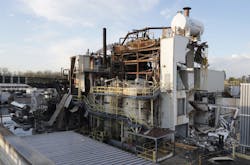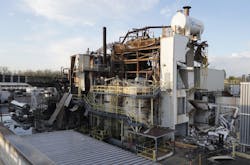Industry Wrap-Up: FDA Says Hand Sanitizer and Brake Parts Don’t Mix; CSB Issues Final Report on Yenkin-Majestic Fire
FDA Sends Warning Letter to Brenntag Great Lakes
The U.S. Food and Drug Administration issued a warning letter to Brenntag Great Lakes for producing hand sanitizer using the same equipment to manufacture auto brake parts. As Yahoo Finance reported, the FDA alleges that the company’s actions violated Current Good Manufacturing Practice regulations. The agency said in its warning letter that the company did not correct the issue after conducting a follow-up inspection. The FDA states that the operation poses a contamination risk. The FDA is asking Brenntag to demonstrate how it’s planning to make pharmaceutical and non-pharmaceutical separately at the facility and provide production records for further review.
Chemical Safety Board Concludes Yenkin-Majestic Investigation
The U.S. Chemical Safety and Hazard Investigation Board (CSB) said in a final report released on Nov. 30 that the Yenkin-Majestic facility in Columbus, Ohio, lacked basic pressure vessel integrity quality assurance practices and necessary engineering controls prior to a deadly explosion in 2021.
The explosion and fire occurred shortly after midnight on April 8, 2021, when a mixture of flammable naphtha solvent vapors and resin liquid escaped through the seal of a closed manway of an operating kettle, creating a flammable vapor cloud that quickly spread throughout the facility. Minutes later, the flammable vapor cloud found an ignition source, causing an explosion and large fire that burned for roughly 11 hours. One worker died in the accident and eight others were injured. The incident caused more than $90 million in property damage.
CSB recommendations to Yenkin-Majestic include a call to update mechanical integrity procedures and implement applicable engineering standards for all pressure vessels in highly hazardous chemicals service, including pressure vessels that do not exceed 15 psig. The agency also says the company should install flammable gas detectors that alert plant personnel of a flammable hazard and demonstrate the use of the hierarchy of controls in its future resin plant designs. CSB also recommends that the company require personnel to wear flame-resistant uniforms in all operating areas that process flammable chemicals and update employee training material to include the requirement for and purpose of personal protective equipment use.
Plastics Hinder Marine Life Reproduction
Chemicals found in plastics may be impacting “shrimp-like” marine creatures from reproducing, according to a University of Portsmouth report published in the journal Environmental Pollution. Toxic plastic additives changed the mating behaviors of critters called amphipod Echinogammarus marinus, the study concluded. The study tested four widely used chemicals found in plastics, including triphenyl phosphate, N-butyl benzenesulfonamide, DEHP and DBP – both types of phthalates that are regulated and not allowed to be used in products in Europe.
The researchers selected the four additives because of the potential danger they pose to human health. The creatures are known to pair up and lock together for two days while mating. Pairs of them were exposed to each chemical, and researchers monitored their behavior over four days, measuring the time it took for the creatures to mate. They found that, at best, it took much longer for the creatures to re-pair, and, at worst, they didn’t re-pair at all. “We must understand more about these chemicals and how they affect behavior,” said Bidemi Green-Ojo, lead author and researcher in environmental toxicology at the University of Portsmouth. “Many types of behavior - such as feeding, fight or flight mode, and reproduction - are essential in an animal's life, and any abnormal behavior may reduce the chances of survival. We are urging environment agencies around the world to take more notice of behavioral data because sometimes the data tells us things that normal toxicity tests don’t. Studies like this give a different perspective on potential damage caused by a specific pollutant.”



